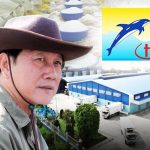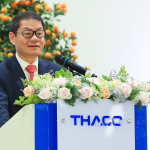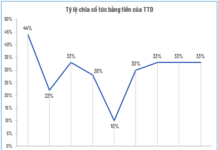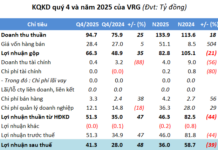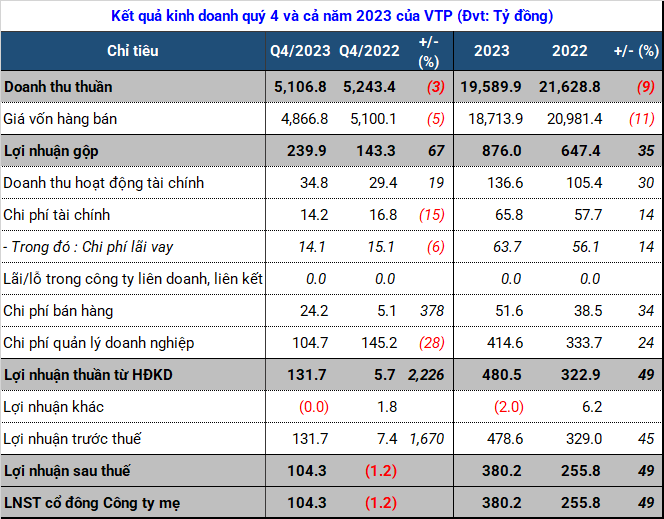Once a powerhouse in the Vietnamese seafood industry, the story of Hung Vuong Joint Stock Company (“Hung Vuong”) and its downfall is a cautionary tale for businesses. Affectionately dubbed the “Pangasius King,” the company’s journey began in 2003 in Tien Giang province with a modest registered capital of VND 32 billion. Led by Mr. Duong Ngoc Minh, Hung Vuong specialized in frozen pangasius fillet exports.
The company experienced rapid growth, and by 2007, it had successfully completed multiple investment rounds and expanded its operations. Its registered capital had increased significantly to VND 420 billion, a remarkable 13-fold increase in just four years.
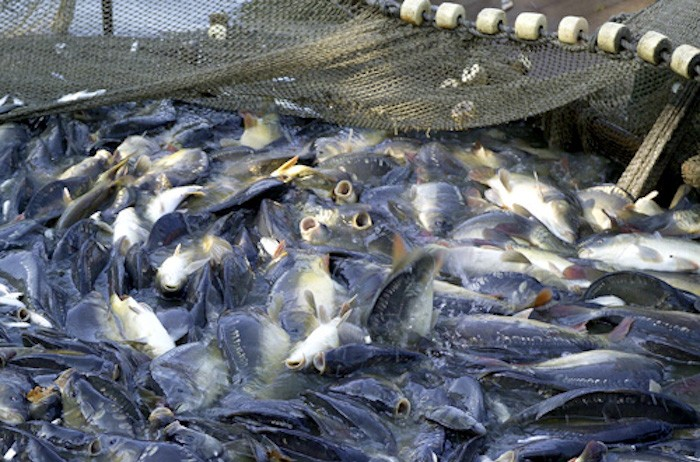
With consecutive years of impressive growth, Hung Vuong reached its peak in 2016, recording a revenue of VND 17,900 billion. The public fondly bestowed the title of “Pangasius King” upon the company for its remarkable achievements. (Illustration)
Hung Vuong quickly surpassed its competitors, including Nam Viet Joint Stock Company (ANV), to become Vietnam’s largest pangasius exporter in the 2008-2009 period.
Riding on its success, Hung Vuong listed its shares on the Ho Chi Minh City Stock Exchange (HOSE) in 2009, with a chartered capital of VND 600 billion convertible into 60 million circulating shares. The company shone as a star in the seafood export sector, with its share price once soaring above VND 20,000 per share.
As a publicly traded company, Hung Vuong’s financial performance became more transparent. Investors witnessed its remarkable growth, with revenue doubling from over VND 1,500 billion in 2007 to nearly VND 3,100 billion in 2009.
The company continued its impressive growth trajectory, reaching its pinnacle in 2016 with a staggering revenue of VND 17,900 billion. The title of “Pangasius King” was a fitting recognition of Hung Vuong’s outstanding accomplishments.
During this prosperous period, Hung Vuong also gained fame for its notable mergers and acquisitions (M&A) deals. These strategic moves helped the company establish a fully integrated supply chain, encompassing aquaculture, processing, and distribution of seafood products, with the ambition of becoming a leading player in the industry.
As of December 31, 2016, Hung Vuong had expanded to include 27 subsidiary and affiliated companies. To support its relentless expansion, the company’s short-term and long-term financial borrowings exceeded VND 8,600 billion, contributing to a total capital source of VND 16,603 billion, excluding payables… all of which had increased significantly compared to previous years.
However, the extensive use of financial leverage and excessive investment took a toll on the company. Hung Vuong’s financial costs spiraled out of control when its core business faced challenges. The enterprise, led by tycoon Duong Ngoc Minh, began to struggle under the weight of mounting financial pressures, which eroded profits. In 2016, despite a record revenue of VND 17,884 billion, the company’s profit after tax attributable to parent company shareholders barely reached VND 10 billion.
In the 2019 annual report, Chairman of the Board of Directors, Duong Ngoc Minh, acknowledged the challenges caused by using short-term capital to invest in long-term assets. He also criticized banking partners for their lack of support in project investments, leaving the company stranded when it needed capital the most.
The tragedy unfolded from 2017 onwards, as Hung Vuong officially entered a crisis marked by losses and banks’ refusal to restructure its debts. Consequently, during 2018-2019, the company had to continuously sell off its subsidiaries and affiliates to stay afloat. Attempts were made to rescue the once-reigning “Pangasius King,” such as Thaco’s intervention in 2020, but they fell short of expectations.
In August 2020, HVG was forcibly delisted from HOSE and moved to the UPCoM market. Thaco also divested its entire stake after nearly a year of investment. Today, Hung Vuong’s continuous losses have prompted regulatory action, with its shares restricted from trading since December 15, 2023, due to the company’s failure to publish audited financial statements for three consecutive financial years or more.
Investors have fled, leaving HVG shares at a mere VND 1,400 per share, the equivalent of a stick of gum. The downfall of the once-mighty “Pangasius King” serves as a stark reminder to businesses of the dangers of excessive financial leverage, uncontrolled borrowing, and unrealistic repayment plans. Easy access to capital to fuel ambitions, if not properly managed, can be the beginning of a long and painful decline.
Former “Catfish King” Hung Vuong seeks to sell a series of assets to repay debts, including a billion-dollar company once rescued by billionaire Tran Ba Duong to no avail.
During the eating stage, Hung Vuong used to excel as a renowned M&A player in the market. In 2019, Hung Vuong had accumulated losses of over 1,700 billion VND.
How does billionaire Tran Ba Duong avoid the pitfalls of investing in Laos while also engaging in banana farming and cattle breeding?
Drawing from profound experiences and lessons learned from past mistakes in planning and infrastructure investment, such as electricity, water, irrigation, and physical facilities, Chairman Tran Ba Duong is poised to undertake a groundbreaking agricultural project worth $750 million in Laos. How will he accomplish this?


